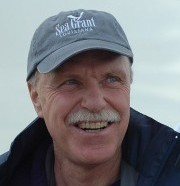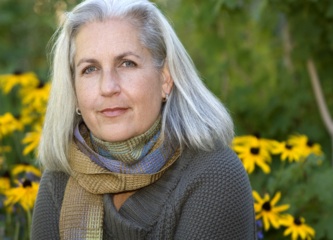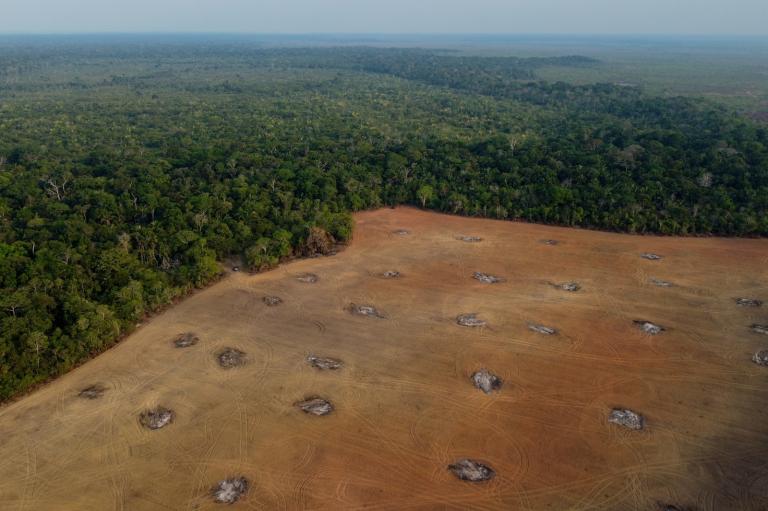 Terry Tempest Williams.Orion magazine recently asked acclaimed author Terry Tempest Williams to travel the length of the Gulf of Mexico and see with her own eyes the fallout from BP’s Deepwater Horizon oil disaster. She came home with a nearly 15,000 word account of her oil odyssey, “The Gulf Between Us.” Orion asked her to reflect on her Gulf experience as President Obama’s commission on the disaster gets underway this week.
Terry Tempest Williams.Orion magazine recently asked acclaimed author Terry Tempest Williams to travel the length of the Gulf of Mexico and see with her own eyes the fallout from BP’s Deepwater Horizon oil disaster. She came home with a nearly 15,000 word account of her oil odyssey, “The Gulf Between Us.” Orion asked her to reflect on her Gulf experience as President Obama’s commission on the disaster gets underway this week.
Q. How has covering this story changed you?
A. I have been fundamentally changed by the scale of what I saw at the Maconda Well blowout: Oil. Oil for as far as I could see, as wide as I could see from “the source,” where the Deepwater Horizon rig exploded killing 11 men. Nothing could have prepared me for the magnitude of the spill. We saw rivers of oil as wide as the Mississippi itself. When the press, alongside President Obama’s administration and BP said it was largely gone, oil remained. Lots of it — creating grave illnesses among the people and a fouled sea extending to the beaches, bayous, and marshes. Five million barrels of crude oil does not just disappear. The oil is not gone. The people are not gone. It will be years before we know the truth of this very dark story.
I have been changed by the stories I heard from the people who live there: Kevin and Margaret Curole; Becky Duet; Dr. Paul Kemp; Jerry Cope; Robin Young; Lori and Mike DeAngelis; Tom Hutchings; the BP workers themselves. They are speaking with embodied knowledge from the ground up, not shore-based knowledge, which is relegated to sound bites, positions, and opinions. From the ground-up, the truth is coming to the surface. Samantha Joye, a scientist from the University of Georgia, described two inches of oil on the ocean floor as “a graveyard for the macrofauna” — “undermining the ecosystem from the bottom up.”
This story allowed me to see once again the importance of personal ground-truthing. We cannot believe what we are being told or even what we read. We need to see it for ourselves. Direct experience. It is crucial that we listen to the people who are living there in Louisiana, Mississippi, Alabama, and Florida. Over 600 miles of the Gulf Coast shoreline has been sullied. When the press and politicians leave, when the cameras are turned off and the news runs toward another story, and the money is paid out by BP, the people remain, sick and sick at heart. The Gulf remains diminished, the birds, the fish, the sea mammals, and all the life hidden from view, is still suffering.
When Kevin and Margaret Curole and Becky Duet speak as Cajuns that their way of life is threatened, what they remind us of is how the world is interconnected. The redfish in the bayou, the redfish in the ocean, the redfish on our plate at Galatoire’s on Bourbon Street, this is all interdependent upon the health of the ecosystem, the health of our economy, and how we define both. It will be years before we know the magnitude and truth of the BP blowout in the Gulf of Mexico.
Q. What did you learn that frightens you or gives you hope?
A. The use of dispersants, above and below, is deeply frightening. The 74 exceptions given in 48 days by the U.S. Coast Guard to BP to continue usage of the dispersant Corexit in the beginning weeks of the blowout, against the judgment of the EPA, is just another example of how our government and corporations are in collusion against the wellbeing of the citizens of this country. Two million gallons of dispersants were used, some of it sprayed over the bayous as residents sat on their porches at night watching the planes fly over them. People are now sick. This is criminal. Who is accountable? If corporations are now viewed as individuals through the Supreme Court ruling “Citizens United v Federal Election Commission,” then shouldn’t corporations be tried as individuals in our courts of law?
It was also troubling to learn of BP’s “hush money” given to boat captains throughout the Gulf of Mexico under the auspices of their “Vessels of Opportunity” program. A captain of a 20 foot boat could be paid $1200 a day with additional funding for crew members to “go out and look for oil.” In many instances, these boat captains had nothing to do, no orders were given, they drove around in circles. They signed up for the program, registered their boats and in so doing, agreed not to talk to the press or government about what they saw. I talk about this in specific terms in my Orion article with boat captains Lori and Mike DeAngelis.
The fact that I was taken to the BP Decontamination Unit under the strong arm of a private (TALON) security guard dressed in black was also disconcerting. We were told we were “contaminated” after walking on a public beach on Grand Isle. When I asked what we had been contaminated by, the security guard said he was not at liberty to say. BP Executive Doug Suttles announced on local and national television that morning that all beaches in Louisiana were now open. We took him at his word.
We bypassed the signs that said “Authorized Personnel Only.” We were stopped and then marched half a mile down the “contaminated” beach by the equivalent of a Blackwater thug. I wanted to ask “by whose authority?” But I didn’t. I wanted to see where it would land us. Where it landed us was in two blue kiddie pools with god knows what kind of solution. And they never did tell us what we were contaminated with — Corexit — no doubt.
It should also be noted that many of the people we spoke with had been visited by either agents from Homeland Security or had been contacted by BP personnel themselves, in acts of intimidation. I personally received two calls from the BP public relations crew. How they got my cell phone number remains a mystery.
The number of dead birds, sea mammals, and ecological damage has also been gravely underestimated and underreported by BP and our own government. It is imperative that independent scientists be allowed, encouraged, and funded to do continuing research. It will be years before we know the truth of this ongoing disaster. We are not being told the truth by BP. This becomes even more evident (or obvious) when one reads their internal report where they lay blame at the feet of their subcontractors Transocean and Halliburton.
I am heartened by the NGOs that are gathering under one umbrella of intelligence and concern, groups like the The Gulf Restoration Network. Resources are being gathered and an action plan expressed. And I have hope in the honest inquiry being done by the National Commission on the BP Deepwater Horizon Oil Spill that will hold our government and BP accountable for the suffering that has been caused to both the human and wild communities along the coast and in the Gulf of Mexico.
Q. How does this story relate to others you have written?
A. Living in the interior West, specifically in Utah and Wyoming, where oil and gas development is central to both economic growth and public lands issues, I am familiar with this landscape of environmental and social concerns associated with the energy industry. My family’s business, The Tempest Company, lays the pipe for natural gas lines in the West. I grew up with this culture of extraction and have respect for those who work in the oil and gas fields.
In the last decade, however, it is the scale that brings one down to their knees. If Wyoming were a nation, it would be fourth in coal production. A train ca
rries out coal from Gillette, Wyo., 24 hours a day. The Jonah Fields in Pinedale, Wyo., light up the night sky to the point where you can read a newspaper at midnight. Vernal, Utah, a sleepy town that I grew up visiting, known for being the gateway community to Dinosaur National Monument, is now a boomtown that smells of gasoline. Even so, nothing could have prepared me for the oil imprint on the Gulf of Mexico. Shallow and deepwater rigs that appear as pin cushions on the water. Port Fourchon in southern Louisiana looks like a scene out of Mad Max. When you hear about the scale of oil and gas development from Texas to Alabama to Mississippi to Louisiana, you have to see it with your own eyes to take in the magnitude of our addiction to fossil fuels.
How does this story relate to others I have written? It’s about scale and gravity and weight. Nothing has seized me like this story. Nothing. In so many ways, I wish I had not seen what I saw. Oil out to sea from horizon to horizon; people sick; marshes burned; hope collapsing. It will be years before we know the truth of this BP blowout in the Gulf of Mexico. I am now accountable. How to change my life and become more deliberate in all my actions, large and small? May my eyes stay open to the beauty of this world and act. This is my daily mantra.
Q. How do you write so beautifully about destruction?
A. I am not sure I do. Thank you for seeing my words this way. A friend said to me the other day, “You are married to sorrow.” And I said, “No, I just choose not to look away.” There is joy in facing the truth of our lives whether it is through beauty or terror. Perhaps it is about presence, choosing to be present with where we find ourselves at any given moment. I simply try to bear witness to what I see through the language of story.
Q. What do you hope this story will do in the world?
A. I would hope this collection of stories in “The Gulf Between Us” will open people’s eyes to the very real fact that this story of the oil spill is not over. There are real people in real places who are suffering as a result of our choices. And there are those beings who have no voice who are suffering: the billion migrating birds flying over the Gulf of Mexico as we speak; the dolphins, the rays, the schools of fish, redfish among them, shrimp, crabs, and oysters. The marshes. The tidal flats. The bottom of the ocean. Life. And all that remains hidden beneath the sea. The Gulf of Mexico is one of the most beautiful regions of the planet that I have ever seen. Perhaps that is the untold story in the midst of the devastation. It is still here, resilient and vibrant.
I have to say that I don’t see this story as depressing. What I find depressing is that we are not having this conversation far and wide across this country. And that it is ongoing in Congress as well as around our dinner tables. We need legislation to ensure environmental responsibility and safety regulations for workers involved in deepwater drilling. We need a comprehension energy plan that focuses on the realities of climate change. We need transitional and alternative strategies to ween us from a fossil-fuel based economy.
May we see this story of the Gulf of Mexico and the Macondo well blowout, ultimately, as a story of restoration. Restoration of the Mississippi Delta. Restoration of our knowledge of interdependence. Restoration of our sanity, that we can no longer afford our addiction to fossil fuels. The wars in Iraq and Afghanistan, the ongoing oil abuses in the Niger Delta, to the continuing spills in China, Ecuador, and the Arctic, to the emerging understanding of what is actually happening in the Gulf of Mexico in the aftermath of the BP blowout, this is all the same story predicated on greed, denial, and madness.
We can mark this moment not with our despair, but with our creativity, not by our sense of helplessness, but by our engagement. We can demand that Congress come forward with strong legislation with a sound energy bill, climate change bill, and stronger regulations on offshore deepwater drilling. We can choose to live differently. We can embrace alternative energy sources like wind and solar power. We can begin to grow our own food and support community actions that support a more sustainable and sustaining lifestyle. We can open our hearts and literally feel our way to a different way of being in the world. The word empathy comes to mind.
I would like to see us stand in the center of our humanity and power as a species and say as the poet Kenneth Patchen has said:
I hear the beating of a heart. It drowns out every other sound.
To bear witness is not a passive act but can lead us to daring contemplation that moves us to action.
Orion will host a live discussion on the Gulf with Terry Tempest Williams on Nov. 17. To join that call and add your voice to the conversation, check the call-in information here.



